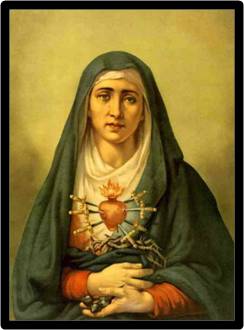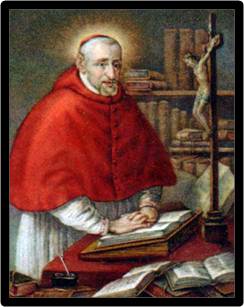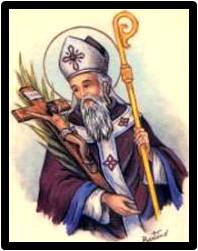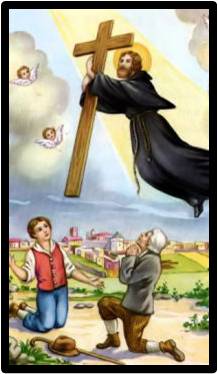SEPTEMBER 15 - OUR LADY OF SORROWS

Our Lady had many great joys as the mother of Jesus, but she had so much to suffer, as well.
Being a loving mother she suffered greatly as she helplessly watched when Jesus was treated so cruelly by his enemies. What terrible suffering to see her Son die on the cross.
Mary is the queen of martyrs because her spiritual pain was much greater than the bodily pain suffered by the martyrs. Her heart was like an altar when on Calvary she offered up her beloved Son Jesus to save us.
The seven times of great suffering during Mary’s life were:
1. The first was when she took Baby Jesus to the temple. There the prophet Simeon told her that a sword of suffering would pierce her heart when Jesus would be put to death.
2. Her second sorrow was when she and St. Joseph had to flee to Egypt with Jesus because Herod’s soldiers were trying to kill him.
3. The third suffering came when Mary searched three days in Jerusalem for Jesus and finally found him in the temple.
4. Our Lady’s fourth sorrow was when Jesus was whipped and crowned with thorns.
5. Her fifth great pain was caused by his being lifted on the cross, where he died after three hours of agony.
6. Mary’s sixth sorrow was the moment when Our Lord’s sacred body was placed in her arms.
7. And her seventh suffering came when he was buried in the tomb.
Mary did not feel sorry for herself or complain because she had to suffer so much during her life. Instead, she offered her sorrows to God for our sakes. She is our Mother. Because she loves us dearly, she was happy to suffer that we might some day share her joy with Jesus in heaven.



